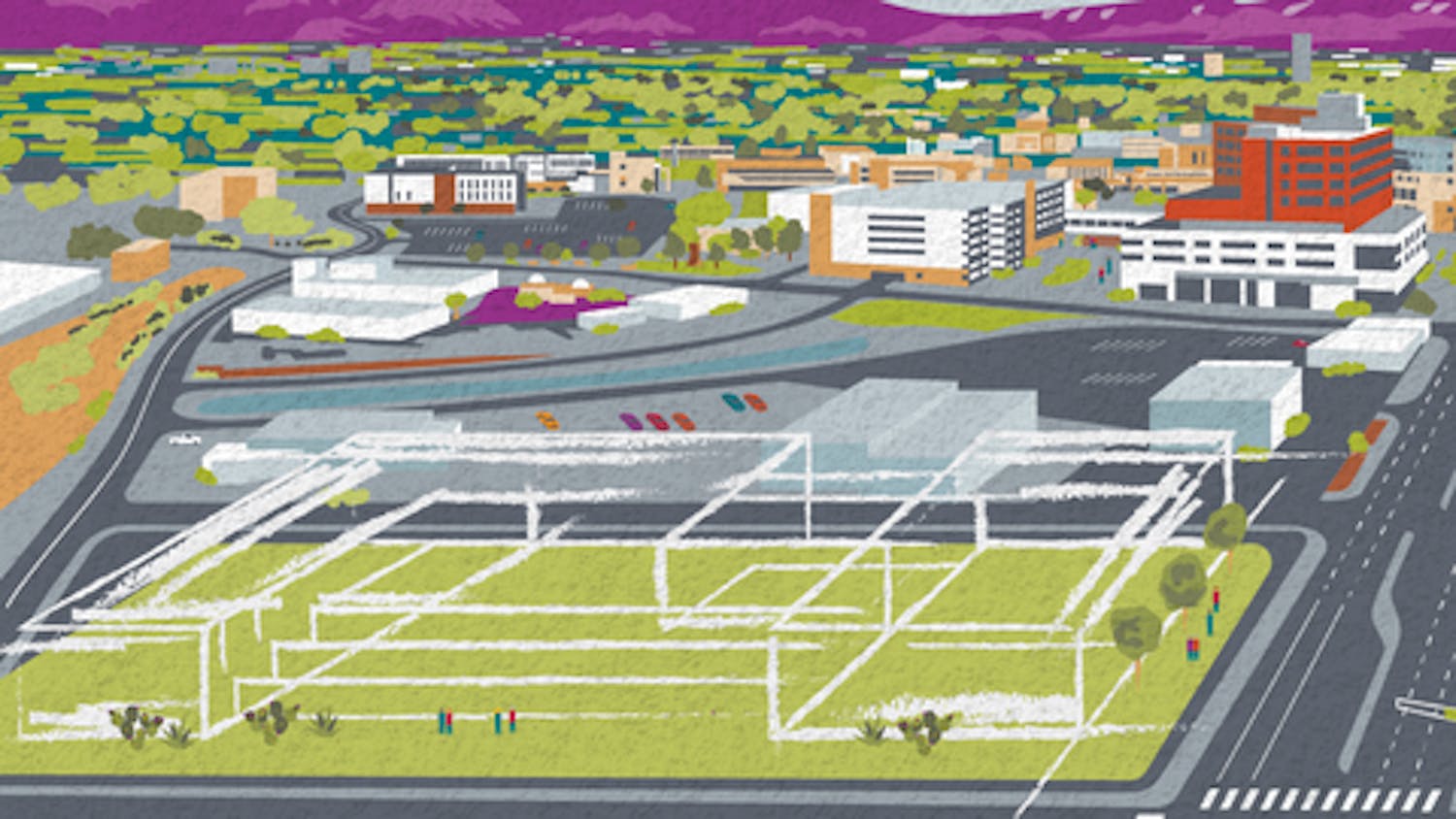UNM signed an agreement with Sandia and Los Alamos National Laboratories Aug. 7 that pledges the institutions’ commitment to researching nanoscience.
Nanoscience is the study of science on the nano level, which is the size of six average atoms sitting end to end. The science can be used for projects ranging from building smaller, more powerful computer chips to a finding a cure for cancer.
“Nanoscience won’t solve all of our problems, but it will take over the Earth in the sense that it will allow us to do so much more in every field imaginable,” said Stanley Williams, a Hewlett Packard fellow and keynote speaker at event. “It will allow us to do a great number of things better than we do now. We’ll build more durable, reliable materials that are easier for the common consumer to use and are more affordable.”
The agreement that formed the New Mexico Nanoscience Alliance does not commit funds, but states that funding may be available from the two laboratories to support meetings, informal conferences, travel and similar minor expenses.
The three institutions pledge to seek funding for research from the U.S. Department of Education whenever it is appropriate.
The laboratories will work with UNM to identify opportunities for joint professorships in nanoscience. In turn, UNM will work to identify and provide its share of the resources for such professorships in departments in accordance with customary University faculty policies.
Get content from The Daily Lobo delivered to your inbox
UNM’s administration commits to working toward establishing a graduate, or nano, materials degree to contribute to the educational resources available for enhancing the growth of nanoscience of New Mexico.
“With this agreement, we deliver to our students in all areas of study very valuable educational opportunities,” said Joseph Checchi, dean of UNM’s School of Engineering. “This will provide for a strong research environment that will benefit both students and faculty. All students benefit from this because of the broad applications of nanoscience and the implications it has on our future.”
Checchi said the most exciting aspect of the agreement is that it allows the UNM community to take an active role in the most current research.
“I was talking with people from the College of Fine Arts, and they’re interested in seeing how the changes will affect their future and technology that they use,” he said. “This really goes beyond simple science applications and is for everyone.”
Williams said he believes breakthroughs in nanoscience will have a greater impact than the advent of plastics, electronics and the internal combustion engine.
“This is bigger than any industrial revolution we have ever seen,” he said. “The applications of it are endless.”
Everything from building better, more durable drill bits to lifesaving breakthroughs in the health care field are among areas that Williams said will benefit from nanoscience research.
William Garcia, a representative from Intel, spoke about the positive impact the research agreement will have on the private sector.
“We all remember that silicon chips fueled the computer revolution, and we are working to improve the structures that we are working on to continue that push to provide cheaper, more durable materials,” he said. “Silicon chips aren’t the best, they are what we understand and know how to use. The bottom line is that once we are able to work on smaller levels, such as nano, we will be able to provide computers at a lower cost because we are using less materials to build them.”
Garcia said that nanoscience research is such a daunting task that it is essential to develop partnerships such as the alliance the two laboratories and UNM formed.
Sen. Pete Domenici, R-N.M., said that he was very excited about the partnership and the impact it will have on the state.
“I am convinced that the Northern New Mexico corridor has the potential to become the next Silicon Valley,” he said. “I hope that people in the community understand that by forming this alliance, we will be taking the lead in bringing the new economy to New Mexico. We have the opportunity to bring those high paying jobs to this state, and this agreement is just the start of that breakthrough.”
Sen. Jeff Bingaman, D-N.M., said that as the Senate’s Energy Committee’s chairman, he sees great potential for nanoscience to solve environmental and energy problems.
“If we understand how things such as nuclear materials break down at the nano level, we’ll be able to better dispose of them,” he said. “This research has great potential to change our world, and I am excited to see New Mexico taking a leadership role.”
UNM President Bill Gordon said the agreement will have a significant impact on the University, and matches its mission to provide state-of-the-art education to its students. He said that while the agreement centers on the two laboratories and UNM, others in the private sector and at other research institutions are welcome and encouraged to join the collaboration.
“It will take the best of all New Mexico institutions have to offer to make New Mexico the best and a true leader in the nanoscience field,” he said.
For more information about nanoscience, go to www.nano.gov.





